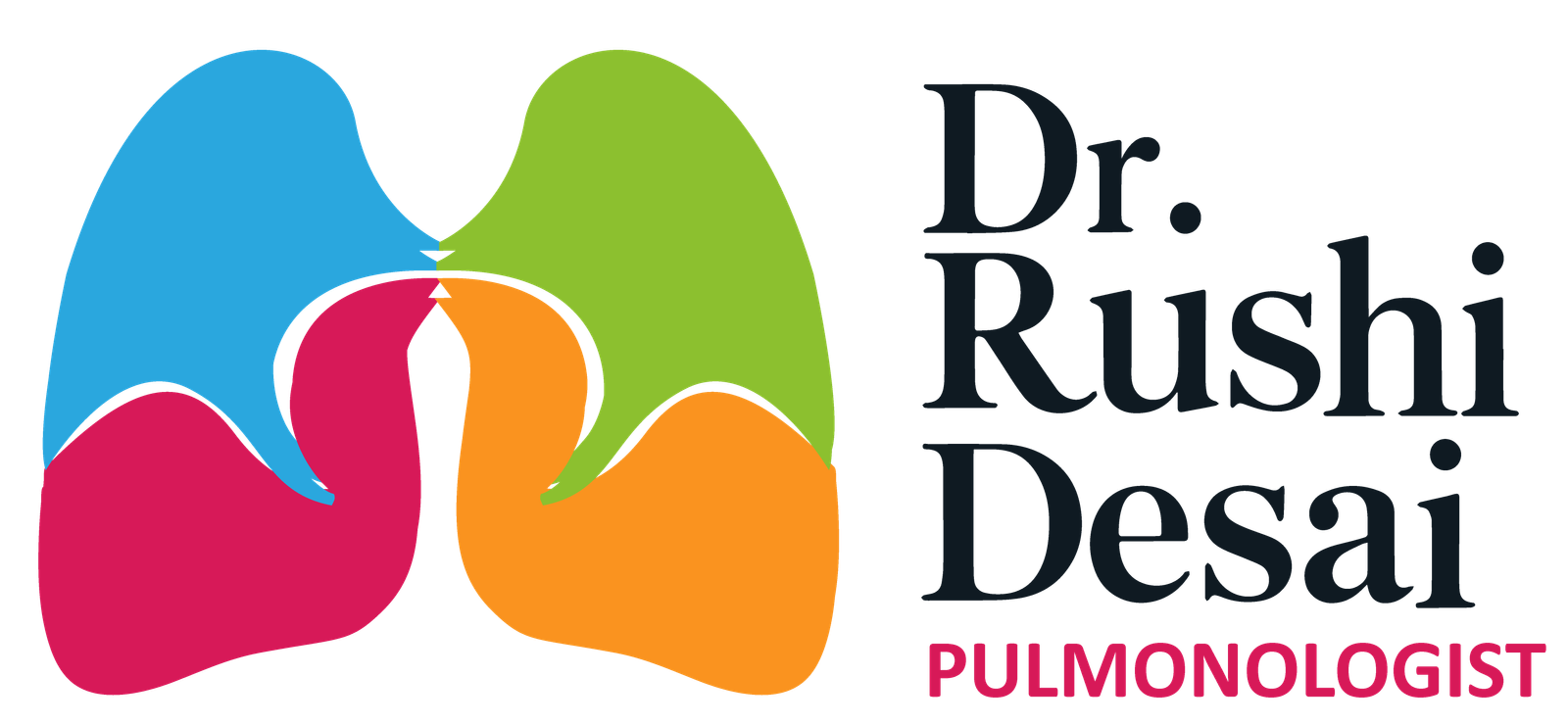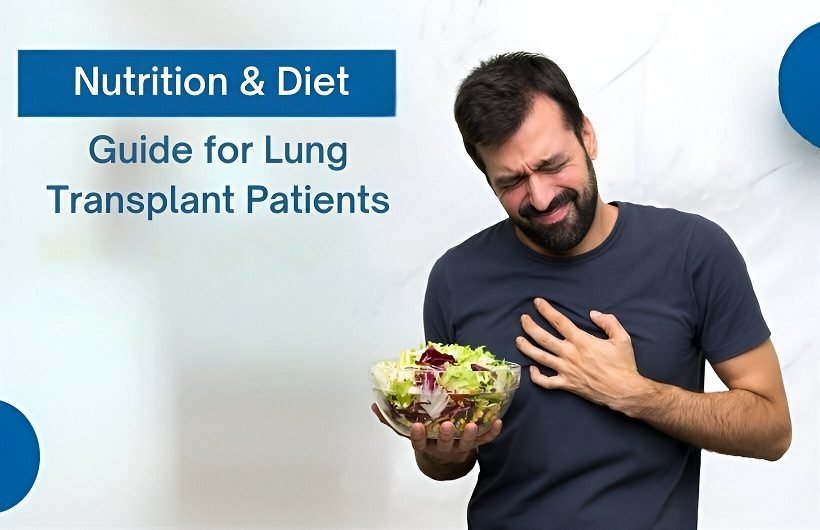Undergoing a lung transplant is a life-changing event that requires meticulous care and attention, especially when it comes to nutrition and diet. For lung transplant patients, maintaining a healthy diet is not just about staying fit—it’s about ensuring the success of the transplant and improving overall quality of life. This article will help people who need a local lung transplant physician or Ahmedabad-based lung specialist find critical information about the dietary needs of lung transplant recipients.
Pulmonologist in Ahmedabad Dr. Rushi Desai recognizes that stable nutrition enhances the health of people going through lung transplant surgery. Knowledge about nutrition both for patients undergoing lung transplant surgeries and for their caregivers significantly affects their recovery along with their future health quality.
Why Nutrition Matters for Lung Transplant Patients
Your body goes through substantial modifications following the procedure of lung transplantation. The procedure to prevent organ rejection suspends immune system function which increases your vulnerability to infections and other medical problems. Nutritional needs remain essential during every stage of patient recovery for lung transplant patients.
1. Eating a well-balanced diet enables the immune system to become stronger which reduces infection risks in patients.
2. Your body requires protein as well as vitamins and minerals to heal tissues and restore itself after surgery.
3. Patients must avoid food-to-drug interactions through specific dietary plans because immunosuppressant drugs show reactions to certain combinations.
4. Body mass plays a decisive role in post-transplant outcomes because being overweight or underweight both affect the transplantation procedure’s results and general health status.
People seeking expert nutrition advice in Ahmedabad should visit Dr. Rushi Desai who works as a lung specialist in Ahmedabad.
Foods to Include in Your Diet
A balanced diet serves as the foundation for proper care of patients undergoing lung transplantation. The following food groups form essential dietary blocks for patients:
1. Protein-Rich Foods
The body needs protein specifically for maintaining tissue healing processes and building muscle power. Consumption of protein should include lean options which include:
- Chicken, turkey, and fish
- Eggs and dairy products like yogurt and cheese
- Plant-based proteins like beans, lentils, and tofu
2. Fruits and Vegetables
Both vitamins and minerals and antioxidants together with antioxidants exist in fruits and vegetables which work to support your immune system while reducing inflammation. Your diet should include multiple colored foods among these options:
- Leafy greens (spinach, kale)
- Citrus fruits (oranges, lemons)
- Berries (blueberries, strawberries)
- Cruciferous vegetables (broccoli, cauliflower)
3. Whole Grains
Whole grains supply a steady flow of energy to your body with their high content of fiber that promotes good digestion. Include foods like:
- Brown rice, quinoa, and oats
- Whole wheat bread and pasta
- Barley and millet
4. Healthy Fats
By consuming healthy fats one can protect heart health and minimize inflammation in the body. Incorporate sources like:
- Avocados
- Nuts and seeds
- Olive oil and coconut oil
Foods to Avoid After a Lung Transplant
Lung transplant patient should eat some foods but need to stay away from specific foods which present health dangers. Dr. Rushi Desai who leads the Pulmonologist in Ahmedabad suggests patients stay away from these food groups.
1. High-Sodium Foods
High sodium intake causes fluid retention and elevates blood pressure until it strains both the heart and lungs. Avoid:
- Processed foods such as chips along with canned soups should be avoided by lung transplant patients.
- Fast food
- Salty snacks
2. Sugary Foods and Drinks
High sugar intake can lead to weight gain and increase the risk of diabetes, a common side effect of immunosuppressant medications. Limit:
- Sodas and sugary beverages
- Candies and desserts
- Packaged snacks
3. Raw or Undercooked Foods
Raw foods can harbor harmful bacteria, increasing the risk of infections. Avoid:
- Sushi and raw seafood
- Undercooked eggs and meat
- Unpasteurized dairy products
4. Grapefruit and Pomegranate
The consumption of these fruits will disrupt immunosuppressant drug functions making them less effective. You should completely abstain from these substances.
5. Alcohol
When consumed alcohol harms your immune system function by interacting with your medicine prescriptions. The medical advice recommends abstaining from alcohol or at least keeping alcohol consumption to a minimum.
Tips for Managing Your Diet Post-Transplant
1. Rephrasing your diet is possible with help from a registered dietitian who will build a personalized food plan.
2. Regular weight checks help you detect whether your weight stays within a healthy interval.
3. Food safety practice includes complete vegetable washing along with proper meat cooking at the right temperature while taking steps to prevent food contamination during cooking.
4. Avoid modifying your nutrition plan whenever possible because you need medical or dietitian consultation for any major changes.
The Role of a Lung Specialist in Your Journey
Life after lung transplantation presents difficult challenges that you can confront while receiving necessary support from others. Dr. Rushi Desai operates as a trusted lung transplant doctor near you throughout the community to offer full-range care for patients who receive new lungs. He handles complete patient health care by delivering dietary recommendations while keeping track of your post-transplant condition.
Dr. Rushi Desai at Ahmedabad serves as a lung specialist for residents of the city looking for immediate medical guidance.
Final Thoughts
A lung transplant in Ahmedabad is a second chance at life, and proper nutrition is key to making the most of it. By focusing on a balanced diet, avoiding harmful foods, and working closely with your healthcare team, you can support your recovery and enjoy a healthier, more fulfilling life.
If you’re looking for expert care, consider reaching out to Dr. Rushi Desai, a leading lung transplant doctor near you. With his expertise and compassionate approach, you can navigate the challenges of post-transplant life with confidence.






